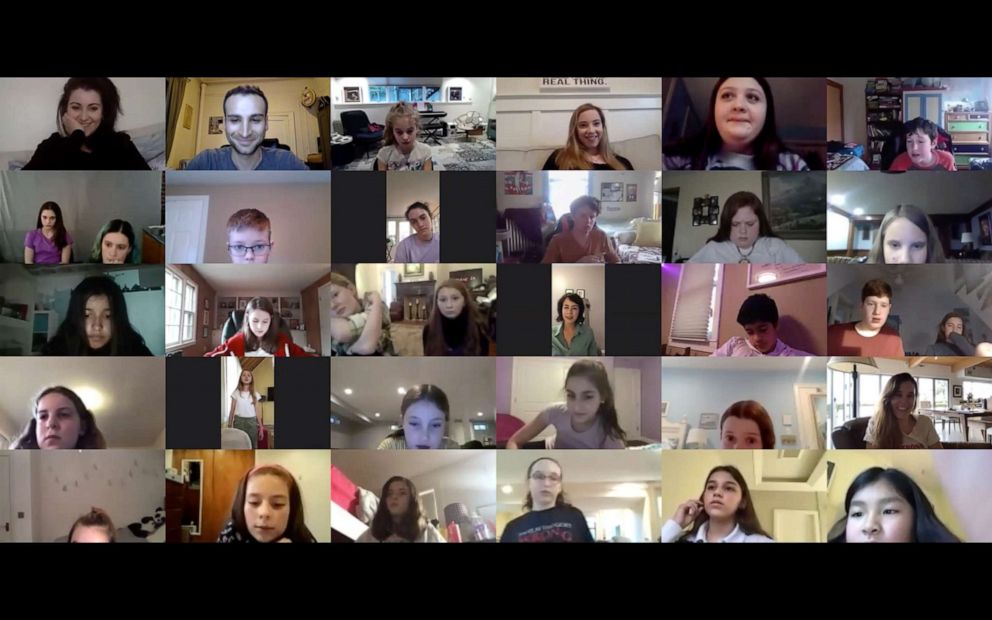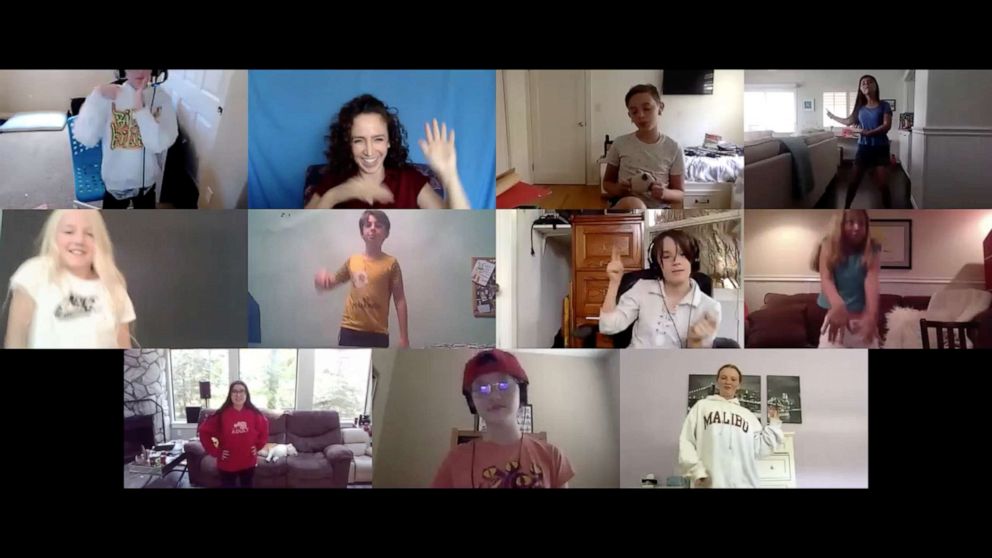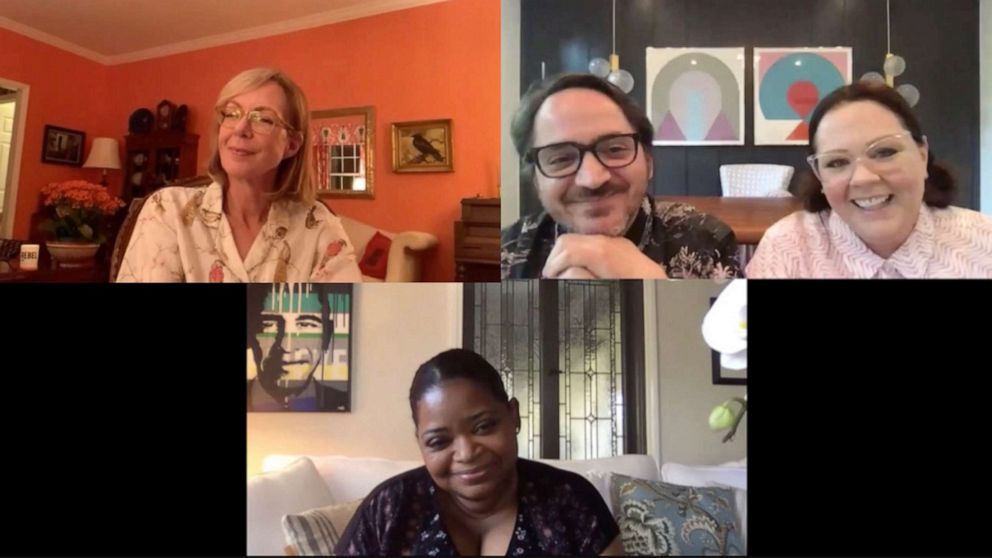As theater goes digital, Broadway, Hollywood become more accessible than ever
People around the world have the opportunity to take lessons from the stars.
It's true, theater stars say, nothing will ever replace live performances: the energy on stage, the intimate lighting, music, the way the actors transport you to another universe, the sounds of a crowd reacting to the action. But this year has forced an industry that has always relied on the physical to try its hand at the digital -- and it's booming.
Amid the coronavirus pandemic, and following Broadway's temporary closure, renowned theater schools like The Groundlings, and new organizations like Broadway from Home, are taking their talents from the stage to the screen, and helping kids and adults alike follow their passion for acting.
Broadway from Home's workshops are made for kids and teens who want to learn everything from traditional theater acting to miming, singing, dancing and practicing magic and circus acts.
Groundlings has students from 10 to 70 years old, with different levels of experience, and focuses mainly on improv. The theater company has a history of excellence, and with their online classes, they've been able to connect students from all over the world with star instructors like Melissa McCarthy, Octavia Spencer, Allison Janney, Kristen Wiig, Ben Falcone, Nat Faxon and Jim Rash, among many others.
Similarly, Broadway from Home boasts an impressive list of full-time and guest instructors, including Brandon Flynn ("13 Reasons Why"), Paul Walter Hauser ("Richard Jewell"), Kara Lindsay ("Wicked"), Grey Henson (Tony nominee for "Mean Girls"), John Krause ("Hadestown"), Nik Walker ("Hamilton") and Molly McCook ("Modern Family").

Founders Harley Harrison Yanoff and Tess Primack are also known acting pros. Yanoff starred in various theater, TV and film productions, including Disney's "The Finest Hours" and "My Best Friend's Girl." Primack starred in Broadway's production of "Fiddler on the Roof."
"Kids work with Broadway professionals that are now much more accessible than ever because they’re out of work," Yanoff said, and the same goes for Hollywood actors at The Groundlings.
When asked how actors are coping with acting within the parameters of the screen rather than on an ample stage, Yanoff said, "Whats interesting about it is it's a little more film-like. A lot of theater pros haven't done TV experience, but at the same time, they understand the framework."
"Actors are really able to adapt, and kids too, whether they're in a little room or have a dance studio in their basement," he added. "It also becomes a little more engaging than in-person acting because your focus is really on and there aren't that many distractions."

Michael Churven, an actor and instructor at The Groundlings, echoed Yanoff's comments, saying, "Sometimes I'm even more connected [to the performance] because this is all I've got right now, it's just me and this other performer."
At Broadway from Home, there are new classes to sign up for every week, and every week, they get sold out. Yanoff and Primack said they expect to continue the workshops even after cities open back up following the coronavirus pandemic, as they provide opportunities for people that may have never had them otherwise.
"Kids in and out of New York will be able to take classes from someone with Broadway credits," Yanoff said. "The way in which we've been connecting is something that's not replicable in person unless you're in a 20-mile radius from New York City or Los Angeles."
Churven said The Groundlings has "always been a live venue; the only thing we did online was advertising." But when the pandemic started, they realized there was a "real demand of people who wanted to train, watch shows, engage with theater and connect."
In the first few days that they advertised the classes, they got 400 students, and have since sold out.

Apart from the bonds that people are forming by participating in these improv classes, Churven said there's been added excitement for the virtual audience because they get to participate in the performances as they go live.
"For shows, we have been able to incorporate some fun technological elements like cool backgrounds, etc.," he said. "If the audience suggest a bakery for example, tech people put on a bakery background during the performance. Meanwhile, during a live improv show, you just have a bare stage. So, online you can build an environment in ways you can't in a physical environment."
They also plan to continue their classes after cities begin to reopen, as Churven said there is the bonus of not having to commute to a theater when you're taking online classes. Still, he has no doubts that when things are safe, people will rush back into theaters to watch live performances.
"Nothing replaces a live performance," he said. "It’s a visceral experience: sound waves and air waves between you and a performer. It's an experience that's just for you. It lives only in the now."




